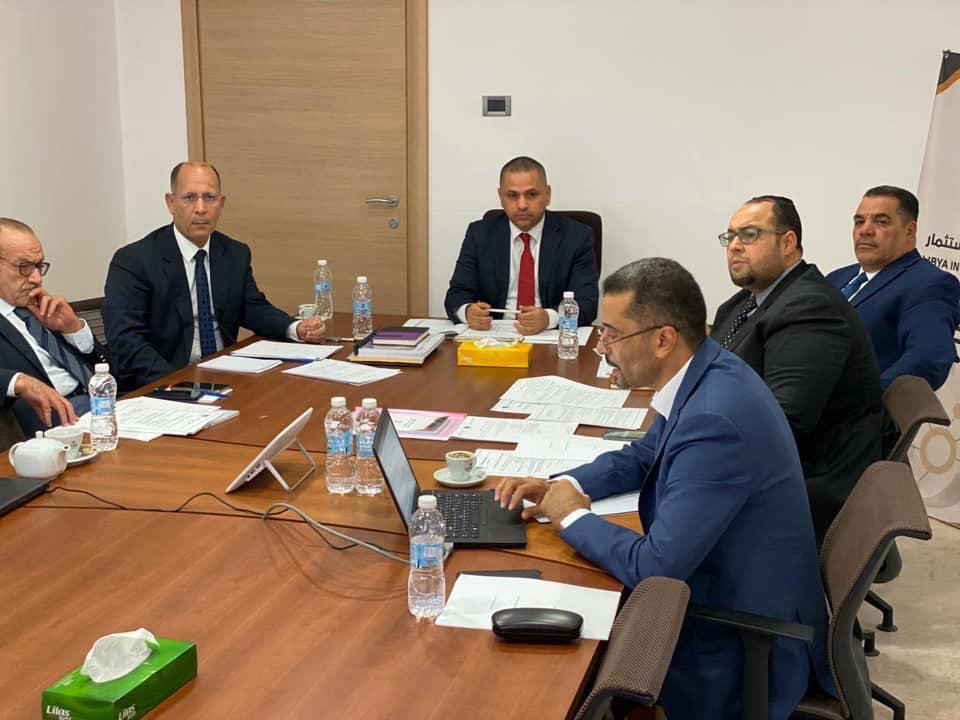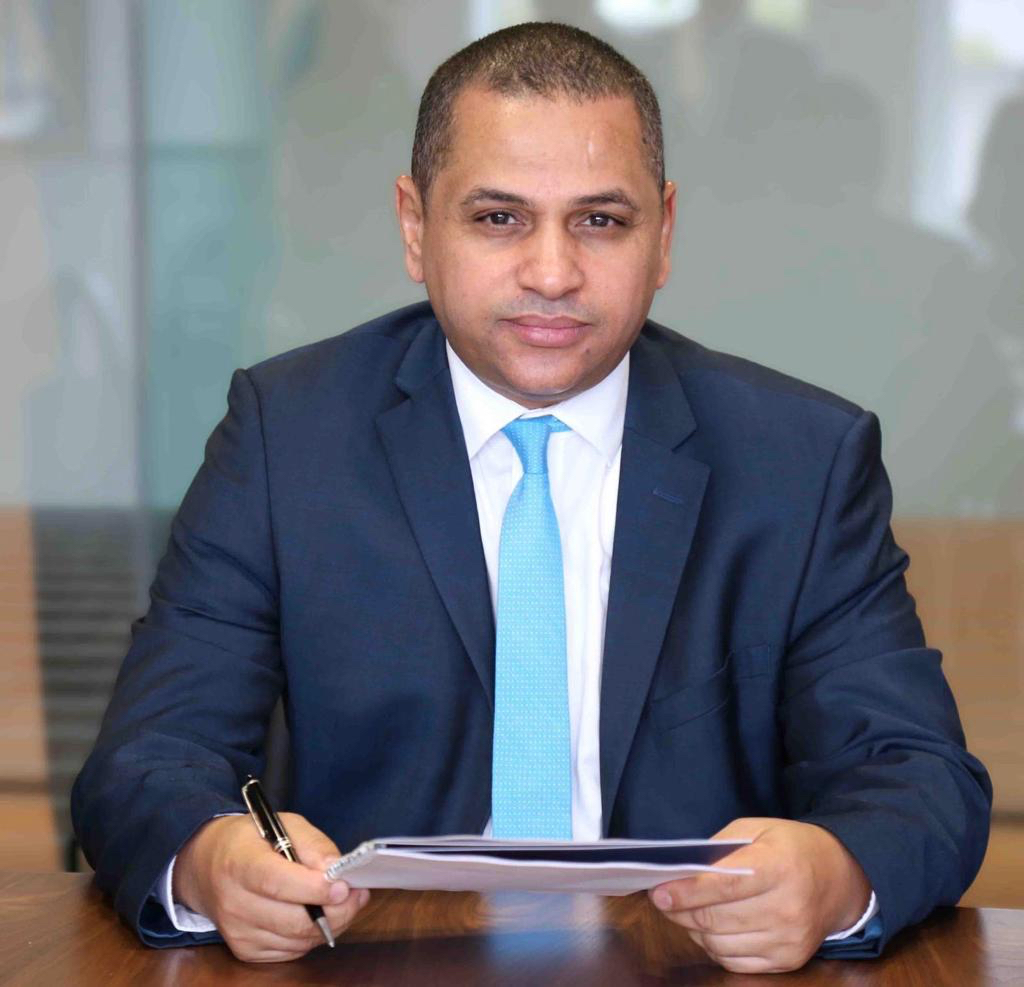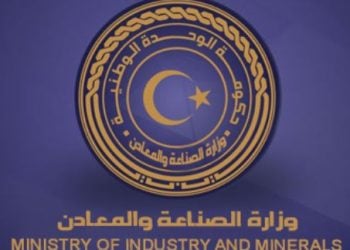By Michel Cousins.

Tunis, 6 May 2020
Ever since Libya’s descent into division and political and economic chaos in 2014, the affairs of the Libyan Investment Authority (LIA) have mirrored those of the country. Competing claims to the authority’s leadership resulted in a lack of proper supervision of the LIA’s assets and subsidiaries, worth over $67 billion at the last proper assessment – but that was back in 2012. The dead hand of division led to assets losing value or being lost altogether in some cases. There were allegations, too, of corruption and mismanagement at various levels. It was like a ship in rough seas with competing captains in the cockpit and crews split as to who to take orders from, or doing nothing, and with a few trying to profit from the chaos.
A decision in London on 25 March 2020 has changed matters. The ruling by the Commercial Court that Dr Ali Mahmoud Hassan Mohamed, who was appointed by the Presidency Council in July 2017 to head the LIA, is indeed its chairman – not any of the other claimants – has allowed for order to be put into the LIA’s affairs.
Technically, the decision only relates to LIA in its activities in England and Wales and UK dependences. But since London is one of the world’s main investment centres and is inextricably linked into what happens in other centres, other jurisdictions are likely to go along with the ruling. In any event, a significant slice of LIA’s investments and assets are managed out of London.
In an interview with the Libya Herald, Ali Mahmoud is frank about the problems he faced when he was appointed as head of the LIA.
There was “a divided institution with limited capabilities to supervise, monitor and follow up”. Governance was weak, there was no transparency and assets had been allowed to go to waste.
Now, the London judgement has finally allowed the LIA to focus on its assets and activities rather than on who manages it. It “ended a period that spanned more than five years which witnessed a lot of wasting of money by individuals and bodies claiming to head the LIA,” explains Ali Mahmoud. As such, the London court ruling has been “a very important victory” he says. Management can now get on with the job of managing.
He is confident that it will.
In fact, getting to grips with enormity of the bringing order to the LIA and making it fit for purpose started before the court ruling.
Hassan points to major undertakings that have been launched which, together, are aimed at assessing the value of all the various assets throughout the world, ensuring that they are properly and profitably administered (including making changes to management where necessary), and that there is full transparency in all LIA operations. The LIA, he says, must go for best practice in line with the Santiago Principles of the International Forum of Sovereign Wealth Funds (IFSWF), of which the LIA is a member. These are transparency, good governance, accountability and prudent investment policies.
The first building block undertaken for a renascent LIA is the evaluation project: the compilation of full accounts of the LIA and all its subsidiaries from 2009 to 2019 together with a complete assessment of all LIA investments at 2019 values and of their profitability and viability. It is being carried out by one of the Big Four international accountancy firms, London-based Deloitte. “We need to get out accounts audited” says Ali Mahmoud. The report is due to be finalised by August and will then be externally audited by another international auditor. He expects it will show significant changes on the 2012 figures. A tender will go out to the big four for the audit later this month he says.
Another building block, started in January this year, is the LIA’s transformation programme Hassan explains. Being carried out in collaboration with London-based consultants Oliver Wyman, it is what needs to be done to dramatically improve governance and transparency throughout the LIA and its subsidiaries.
The LIA is also taking advice from other members of the IFSWF as well as with the body itself on best corporate governance and investment practices, he says.
But already the LIA has moved to ensure that its subsidiaries improve their governance operation and transparency. In some cases, this has included:
- Unifying divided subsidiaries and changing boards of directors;
- Altering articles of association;
- Ensuring AGMs have been held;
- Having regular performance reports.
Transparency
For at least the past five years, the LIA has had a reputation of being an enormous sprawling, uncontrolled operation with countless affiliates, many of them unknown to the general public, and the actions of their boards clouded in secrecy. Public confidence in the LIA suffered as a result.
That is something Ali Mahmoud says he is determined to change.
“The LIA is fully committed to transparency” he says, adding it can now happen as a result of the court decision.
One of the consequences of that decision, he explains, is that it can now gain information about its investments and assets, which it can then make public.
As a result of the wrangling over who was in charge, a previously court-appointed receiver has been overseeing the LIA’s affairs in London. The March legal decision not only now allows the Tripoli management to apply for the receivership to be lifted and so be fully in control of those affairs, it has also resulted in the management being given financial information about investment activities on the LIA’s behalf by third parties, such as banks.
“For example,” Ali Mahmoud explains, “banks and financial institutions have now started to provide us with financial reports and it enables us to ask to move our deposits and investment portfolios”.
As part of the bigger shift, the LIA plans to issue “a comprehensive report on the project to assess the values of the investments of the LIA and its subsidiaries, based on 2019 values”. Additionally, starting this year, it will publish a set of regular management and investment reports.
Ali Mahmoud adds that the LIA is currently talking to IT firms about how best to publicise them.
Asked if the LIA would now publish a full list of its affiliates worldwide, of their accounts and directors, he is clear. “There will be full disclosure and reporting in line with the Santiago Principles.” The Libyan people, he says, can rest assured that the LIA will work “according to the highest standards of disclosure”.
Sanctions regime
Quite apart from the turmoil caused by years of competing management, there has been the freeze on all LIA funds worldwide imposed by the UN. No other sovereign investment fund worldwide has to work under such conditions.
“It is difficult to fulfil the LIA’s legally-set three investment goals due to the sanctions regime,” Ali Mahmoud explains.
These are : securing the future of generations to come; achieving the best financial returns to support the Libyan economy; and contributing to the development and diversification of the economy.
“We are not asking for sanctions to be lifted,” Ali Mahmoud insists, “but we want a slight modification of the system because the LIA incurs losses in some of its investments, and we seek to protect and further enhance those assets.”
He gives an example of where the sanctions are restricting the LIA’s ability to manage existing funds wisely.
“In line with approved investment policy, the LIA must invest 30 percent in bonds and 10 percent in deposits. Under the sanctions regime, however, at the end of the bond maturity period when bonds turn into cash, we have not been able to reinvest. So most of the LIA’s investments have become concentrated in bank deposits. As a result, the asset allocation to cash instruments has increased and has become very high relative to other sovereign funds.”
The freeze also means that the LIA is being forced to hold on to investments even when they are making losses and which it needs to sell and reinvest elsewhere.
“As part of our transformation programme, we are enhancing our investment policy and exploring optimal ways to be able to achieve our investment goals” explains Ali Mahmoud. The programme along with requests to make a number of specific changes will be submitted to the UN Sanctions Committee.
Given that the policy and practice will be in accordance with the methodology followed by other sovereign funds, he in hopeful the committee will approve.
The aim is to have the report finished and ready to send to the committee in June.
There will probably be other requests before the freeze is finally lifted.
“If we receive a report indicating losses, we will apply to the United Nations for a license to re-invest these frozen assets to protect the assets from corrosion.”
Restructuring
The focus is on ensuring that the LIA boosts its assets as well as its operating systems. But until the evaluation of the LIA’s investments is complete and the UN Sanctions Committee agrees to some changes, restructuring (other than changes in personnel) is not possible, Ali Mahmoud concedes.
However, when the evaluation is complete “there will be greater clarity which will inform future investment strategy,” he says. “Consideration will be made regarding the non-performing assets, assets that have limited returns, and loss-making funds.”
But that will not happen without UN agreement.
When it comes, “we expect a major restructuring to ensure that all subsidiaries operate according to economic viability and sound profit criteria,” he says adding that “assets that do not yield a good return on risk or are inconsistent with these investment objectives will eventually be disposed of.”
Advisors and management
The history of the LIA has been one of outsourcing its investment management, but at great cost as the court cases against Goldman Sachs and Société Générale showed. Despite the bitter experience, the LIA still feels that it has to rely on outside management experience, at least for the time being.
“In the long run, one of the LIA’s objectives is to develop and build up local investment expertise and finance services capabilities,” says Ali Mahmoud. “But at the moment this doesn’t exist and we must ensure our money is managed professionally in the interim. Therefore, we plan to use reputable external managers and custodians to oversee our investments, but to require them to help train our staff in the process.
The LIA also plans recruit some international experts to help train young Libyans to become talented investment analysts and advisers.
Also, in the meantime, it will be to looking for general advice from other sovereign wealth funds, such as Norway’s.
“By observing Norway’s sovereign wealth fund and their activities,” Ali Mahmoud says, “I’ve learnt the value of transparency – the importance of publishing annual reports, disclosing information on the fund’s website, promoting continuous communication through multiple channels, the importance of leadership and the value of diversification driving much stronger returns.
“We will need to manage ourselves and invest in a manner much more aligned to the Norwegian and other leading SWFs. Overseeing this lengthy and complex transition in capabilities and investment approach is at the heart of everything we are doing.”
Investment in Libya
LIA’s activities have, until now, been largely outside Libya, although there is a local investment fund, working mainly in the education and health sectors.
Internal investment will be significantly expanded.
“We will work to bring our international partners from outside Libya to participate in rebuilding the country, especially in contributing to raising oil and gas production. The LIA seeks to encourage investment and will use our contribution to encourage stability in Libya.”

Covid 19 and the international market
The London court ruling has cleared the air and enabled the LIA to start getting back on track, but it has also coincided with Covid 19. The global economy has been massively impacted and the LIA, with assets in so many different sectors and areas of the world, has not escaped the consequences. But, says Ali Mahmoud, it is working to limit them.
“The LIA has started working with investment teams, subsidiaries, operating companies and our consultants to assess the impact in order to develop a strategy to mitigate any negative impacts and protect our assets in the long term.
“Inevitably, there will be immediate and short-term consequences for returns, assessments and costs . . . The LIA and its subsidiaries are also concerned with the safety of employees and have put in place steps and procedures to ensure that they can work from home or be protected from the virus.”
He is confident that after five years of division and disorder, and now with a single and united leadership, the LIA will now grow and fulfil its directive to ensure income and wealth for future generations, impressive financial returns, and support for Libya’s economic diversification.
“We have the power of supervision and follow-up, we work within the UN Sanctions regime and have good relations with the Panel of Experts. We are working to enhance governance, transparency and reporting through expertise brought in by one of the Big 4 accountancy practices.”
Moreover, the LIA has a clear and achievable strategy to ensure it delivers for everyone in Libya, he says. “My leadership is focused on maintaining the safety for our assets and delivering our transformation strategy and thereby becoming an exemplary sovereign wealth fund.”










